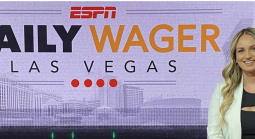Prospects for Malta Online Gambling Sector Good

The prospects for growth in Malta's remote gaming industry this year are encouraging, Lotteries and Gaming Authority chief executive officer Reuben Portanier told The Sunday Times.
After witnessing exponential growth at the local industry's inception through early adopters, model replicators and later mergers and acquisitions, Malta continues to experience year-on-year expansion as some operators thrive and others relocate back office units to the island.
Last year, the industry witnessed an immediate growth span of some companies forming part of the same group, all of which were LGA licensees. Mr Portanier believes this latest trend will continue.
The LGA currently regulates over 335 licences held by some 250 operators. In 2009, the remote gaming sector paid €19 million in gaming duties, up from 15.6 million the previous year.
Efforts to win business through the promotion of the Malta jurisdiction continue relentlessly. Between January 25 and 28, a 14-member multidisciplinary team will man the LGA stand at the International Gaming Expo in London, Europe's - and arguably the world's - largest online gaming showcase. Malta Enterprise will support the team.
Clarion Gaming, the IGE organiser, is to stage the World Gaming Briefing in Malta in March. The strategic convention for over 250 of the industry's top CEOs will be sponsored and chaired by the LGA.
At the IGE later this month, Malta's leadership of the European industry will be evident. Mr Portanier said that more than half of the entire exhibition area at the expo will be occupied by entities or companies with a Maltese connection. Of all the international regulators, the LGA, which is participating in the IGE for the seventh time, will have the largest stand. Regulators of Malta's main competing jurisdictions such as the UK, Italy, the Channel Islands and the Isle of Man, will be well represented.
"Maltese audit firms, real estate agents, telecommunication providers, law firms and other operators will attend. International participants will include the industry's top operators, regulators, and service providers," Mr Portanier explained. "The entire i-gaming ecosystem will be present under one roof; delegates are able to visit several jurisdictions without having to travel extensively.
"It is important that operators seeking to establish their business in Malta have full visibility of what the local business environment is like.
"They usually seek information about the tax regime and business friendliness; 95 per cent of the queries are technical or legal, but others focus on issues like property prices and the crime rate. For operators, it is not only a matter of obtaining licences from Malta. Our logo carries a lot of repute at a marketing level."
LGA officials, including Mr Portanier, will also participate in three pre-event conferences, each focusing on cybercrime, international issues, and the industry's legal aspects.
The chief executive explained that the event produces concrete results. The industry witnesses continuous evolution and swift changes, particularly in terms of European policy. Operators, even those that already possess a Maltese licence, need the opportunity to confirm issues in view of their business plans.
Malta, Mr Portanier emphasised, gives a lot of importance to ensuring that the EU principles on freedom of establishment and service provision are truly upheld.
Gaming operators encounter various set-ups across the EU, as there is no European directive. Some countries are intent on protecting gaming monopolies, while others seek to regulate the industry within their own territory.
Besides being a member of the EU and the Eurozone, Malta is at an advantage as the legislative framework governing gaming is more onerous than is actually mandated of a member state.
Mr Portanier explained that for Malta's industry to be sustainable, the regulator, for one, cannot afford to be complacent. Coupled with its fast evolution, the remote gaming industry sees rapid technological advances. The major challenge is keeping abreast of developments.
"We are not a fly-by-night regulator," Mr Portanier emphasised. "We improve constantly. We ensure that we are in tune with the technical, legal, European and gaming changes within the industry. The LGA's 52 staff includes certifiers, auditors, and legal experts.
"We also have a network of certifiers from private industry to which we outsource. This ensures a degree of independence. That is what helps us react to changes swiftly."
The regulator oversees a complex industry. The workload of keeping out unwanted elements like money-laundering and operators involved in illicit activity, and protecting vulnerable groups like children, is heavy in an industry which operates round-the-clock.
The LGA collaborates strongly with the police, other authorities, and banks. Overseas, it works with Europol, Interpol, and regulators, to carry out investigations and due diligence procedures.
Mr Portanier has been in the job for nine months and said detailed consultation with local industry has taken place over the past few months.
The regulator has accelerated its turnaround time by 27 per cent after stakeholders raised the issue of the backlog in licence processing during consultations. Mr Portanier explained licence processing has been streamlined carefully, without compromising on the thoroughness of the due diligence process. The LGA has now set itself a target to speed up the processing period by 40 to 45 per cent.
Other improvements are also lined up for this year following talks with the Malta Remote Gaming Council, which represents a considerable number of licence holders.
The industry has also forwarded suggestions on ways to mitigate other issues, particularly limiting some technological dependencies. Two working committees are currently winding up their tasks to produce their findings on technological advances in the next few weeks.
Another immediate major task for the LGA is the consolidation of the legal framework.
"We have an advisory capacity to the legislator," Mr Portanier explained. "We are currently going through a series of reviews. Where there are elements for swift intervention which are within the authority's control, we modify technical or procedural policies. We are consulting industry about developments at EU level where things change from week to week. We participate very actively in all the European Commission's working groups, expressing our position at the table."
Mr Portanier said the ultimate scope of the LGA's wide-reaching efforts is to preserve the industry's ecosystem.
"We are not a licensing jurisdiction, neither are we a gaming haven," the chief executive emphasised. "The operators we license have a physical presence in Malta and most opt to have Maltese-registered companies."
Thanks to the increasing quality of the local talent pool, half the industry's 2,500-odd workforce is now Maltese. The private sector, in turn, has taken up the challenge to be an integral part of the industry's environment.
The jurisdiction's reputation is paramount to its success. Mr Portanier said the regulator had discontinued licences and turned down applications from provisional licence holders in breach of regulations. Obtaining a licence from Malta, he said, is not easy.
"It is not about the numbers but about the quality of the operators," Mr Portanier emphasised. "Our numbers continue to grow because we have the quality. The main reason operators seek to come to Malta is that they want to be regulated by a serious authority."













